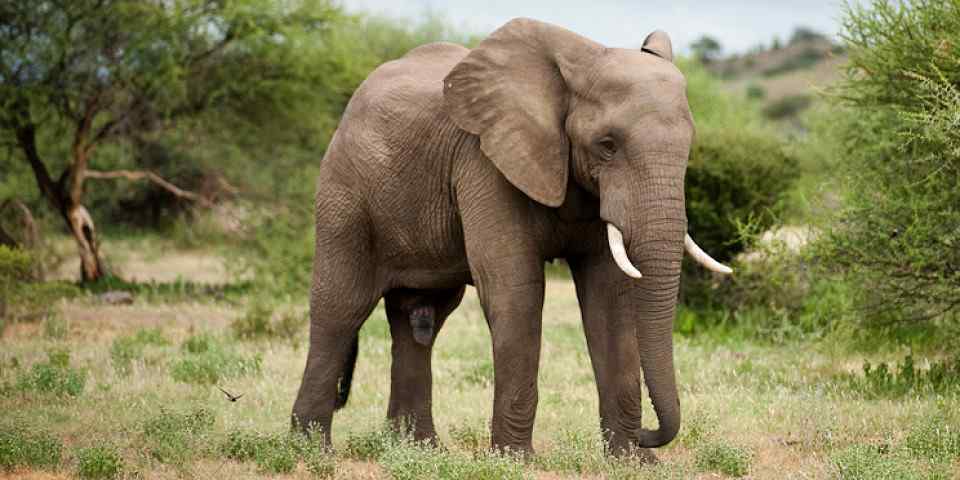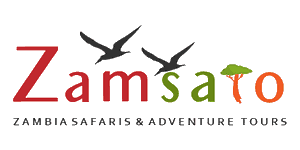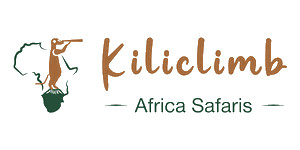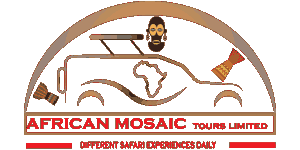Tour Length
Rates in USD $ – Change Currency
Per person, excl. international flightsOperator Rating
Other Tour Features
Filter by Operator
Filter by Accommodation
African Canoe Safaris
Africa offers some epic canoe safaris. The Okavango Delta, the Zambezi River and Malawi’s Shire River are great all-round African safari destinations, but they show their liveliest and most surprising sides to paddlers. African kayak safaris offer opportunities to get up close to elephant, hippo, crocodile and more. This is true whether you take it easy in a mokoro (dugout canoe) and glide into the sunset, or embark on a multiday canoe adventure. Best of all, canoes offer a way into the animals’ watery habitat. Cruising quietly along in a wooden or fiberglass craft means you won’t disturb the animals, from birds on branches to thirsty antelope at the riverbank.
-

5-Day Mokoro and Big Cat Botswana Experience
$3,410 to $5,452 pp (USD)
Botswana: Private tourLuxuryTented Camp
You Visit: Maun (Start), Okavango Delta, Savuti (Chobe NP), Maun (End)

Off2Africa Travel
5.0/5 – 152 Reviews
-

3-Day Mokoro Overnight Private Tour
$622 to $660 pp (USD)
Botswana: Private tourBudgetCamping
You Visit: Maun (Start), Okavango Delta, Maun (End)

Mosu Safari Tours
5.0/5 – 39 Reviews
-

3-Day Okavango Delta Mokoro Safari
$1,188 pp (USD)
Botswana: Shared tour (max 6 people per group)
Mid-range CampingYou Visit: Maun (Start), Okavango Delta, Maun (End)

Xaa Safaris
4.7/5 – 24 Reviews
-
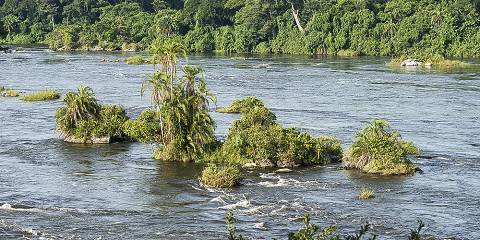
3-Day Kayaking and Bungee Jumping on the River Nile Tour
$1,837 pp (USD)
Uganda: Private tour
Mid-range LodgeYou Visit: Entebbe (Start), Jinja (Town), Entebbe (End)

Sunset Adventures
5.0/5 – 9 Reviews
-
![3-Day Okavango Delta & Boteti River Tented Safari]()
3-Day Okavango Delta & Boteti River Tented Safari
$715 to $754 pp (USD)
Botswana: Shared tour (max 10 people per group)LuxuryLodge
You Visit: Maun (Start), Boteti River, Moremi GR (Okavango Delta), Maun (End)

The Mzansi Experience
4.5/5 – 88 Reviews
-
![3-Day Kayaking and Bunge Jumping on the Nile River]()
3-Day Kayaking and Bunge Jumping on the Nile River
$1,089 pp (USD)
Uganda: Private tour
Mid-range LodgeYou Visit: Entebbe (Start), Nile River, Entebbe (End)

Maseke Adventures
5.0/5 – 1 Reviews
-
![3-Day Epic Okavango Delta Mokoro Expendition]()
3-Day Epic Okavango Delta Mokoro Expendition
$1,815 pp (USD)
Botswana: Private tour
Mid-range CampingYou Visit: Maun (Start), Okavango Delta, Maun (End)

Zazu Epic Safaris
5.0/5 – 4 Reviews
-
![3-Day Mokoro Safari]()
3-Day Mokoro Safari
$990 pp (USD)
Botswana: Shared tour (max 12 people per group)BudgetCamping
You Visit: Maun (Start), Okavango Delta, Maun (End)

Travel Creations Botswana
5.0/5 – 9 Reviews
-
![3-Day Mokoro Exploration Safari]()
3-Day Mokoro Exploration Safari
$660 pp (USD)
Botswana: Private tourBudgetCamping
You Visit: Maun (Start), Okavango Delta, Maun (End)

Safari Horizons
5.0/5 – 1 Reviews
-
![4-Day Lower Zambezi Canoe Experience]()
4-Day Lower Zambezi Canoe Experience
$946 pp (USD)
Zambia: Private tour
Mid-range Camping & LodgeYou Visit: Lusaka (Start), Lower Zambezi NP, Zambezi River, Lusaka (End)

Zamsato
4.9/5 – 33 Reviews
-
Top Rated Operator

1-Day Fully Canoeing in the Foothills of the Virunga
$495 pp (USD)
Rwanda: Day tourShared tour (max 7 people per group)
You Visit: Kigali (Start), Ruhengeri (City), Kigali (End)

Golden Rwanda Safaris
5.0/5 – 259 Reviews
-
![7-Day Canoeing Safari and Lower Zambezi National Park]()
7-Day Canoeing Safari and Lower Zambezi National Park
$2,717 pp (USD)
Zambia: Private tour
Mid-range Camping & LodgeYou Visit: Lusaka (Start), Zambezi River, Lower Zambezi NP, Lusaka Airport (End)

Adventure Purists
4.8/5 – 16 Reviews
-
![1-Day Countryside Immersion - Canoeing and Guided Walk]()
1-Day Countryside Immersion - Canoeing and Guided Walk
$308 pp (USD)
Rwanda: Day tourPrivate tour
You Visit: Kigali (Start), Ruhengeri (City), Kigali (End)

Kingfisher Journeys
5.0/5 – 1 Reviews
-
![1-Day Lake Kivu Beach Relaxation Tour]()
1-Day Lake Kivu Beach Relaxation Tour
$319 pp (USD)
Rwanda: Day tourPrivate tour
You Visit: Kigali (Start), Lake Kivu, Kigali (End)

Silverbird Tours Agency
4.9/5 – 29 Reviews
-
![½-Day Canoeing Trip Adventure on Lake Duluti - Arusha]()
½-Day Canoeing Trip Adventure on Lake Duluti - Arusha
$143 pp (USD)
Tanzania: ½ Day tourPrivate tour
You Visit: Arusha (Start), Lake Duluti, Arusha (End)

EL. Classical Adventures
5.0/5 – 28 Reviews
-
![1-Day Canoeing and Forest Walk in Lake Duluti Arusha]()
1-Day Canoeing and Forest Walk in Lake Duluti Arusha
$143 pp (USD)
Tanzania: Day tourPrivate tour
You Visit: Arusha (Start), Lake Duluti, Arusha (End)

Tanzania Offroad Trips
4.9/5 – 24 Reviews
-
![1-Day Mokoro Safari Okavango Delta]()
1-Day Mokoro Safari Okavango Delta
$174 pp (USD)
Botswana: Day tourShared tour (max 8 people per group)
You Visit: Maun (Start), Okavango Delta, Maun (End)

Keya Botswana Travel Agency
5.0/5 – 8 Reviews
-
![1-Day Pugu Kazimzumbwi Nature Forest Reserve]()
1-Day Pugu Kazimzumbwi Nature Forest Reserve
$77 pp (USD)
Tanzania: Day tourPrivate tour
You Visit: Dar Es Salaam (Start), Pugu Kazimzumbwi Nature FR, Dar Es Salaam (End)

Africa Mulimi Safari Company
4.9/5 – 7 Reviews
-
![1-Day Walking & Conoeing in Lake Duluti]()
1-Day Walking & Conoeing in Lake Duluti
$105 pp (USD)
Tanzania: Day tourPrivate tour
You Visit: Arusha (Start), Lake Duluti, Arusha (End)

kiliclimb Africa Safaris
5.0/5 – 97 Reviews
-
![1-Day Wasini Snorkelling Tour]()
1-Day Wasini Snorkelling Tour
$110 pp (USD)
Kenya: Day tourShared tour (max 10 people per group)
You Visit: Mombasa (Start), Wasini Island, Mombasa (End)

African Mosaic Tours
4.7/5 – 97 Reviews
7 Questions About Canoe Safari Tours

Answered by
James Bainbridge
James is a travel writer and author of many Lonely Planet guides, including ’South Africa, Lesotho & Swaziland’ and ’Zambia, Mozambique & Malawi’. He has visited a good selection of Africa’s top canoe-safari destinations, and has done a mobile safari through the Okavango Delta region to Victoria Falls.› More about James
7 Questions About Canoe Safari Tours
 James Bainbridge
James Bainbridge
Why should I choose an African canoe safari?
“You should choose an African canoe safari because it’s one of the most underrated ways to explore the bush. It’s not just for the wildlife-viewing opportunities but for the whole experience of gliding along the waterways. Unlike in the back of a safari vehicle, you’re out in nature and there’s a feeling of calm to paddling down the serene channels. Sighting a big African animal also won’t cause a traffic jam. Canoe tours access watercourses too narrow or shallow for larger pontoon boats or noisy speedboats. Then there’s the thrill of seeing animals not only in their habitat but at their level. Perhaps you’ll paddle alongside an elephant cooling itself off, with only the silvery water between you. Seeing animals in this environment also offers a front-row view of situations and behavior that you will encounter less frequently on land. From a herd of elephants crossing the river to a pack of lions slaking their thirst, your stealthy, silent canoe allows you to watch undetected. The riverbanks and wetlands are home to rich birdlife, whether it’s African darter on the Chobe River or Pel’s fishing owl on the Zambezi. This is a photogenic setting to see flora and fauna alike, with the blue sub-Saharan sky reflected in the ripples.”
1Do I need experience for this type of safari?
“No, you don’t need to be a safari veteran who discovered the source of the Nile to join an African kayak safari. You will receive a safety briefing before setting out and, in many cases, paddle with your experienced guide in a two-person canoe. Survivalist skills and weeks of organization are also not required on this holiday. On longer trips, you will receive a ‘what to pack’ list and have a last-minute opportunity to buy extra drinks and provisions. Longer tours are generally catered. Rations of water, alcoholic sundowners and fireside tipples are included in the packages. So you can relax and concentrate on viewing and photographing the wildlife. That said, bear in mind that many experiences fall under the banner of African canoe safari. It could be a mellow mokoro ride through the Okavango Delta, being pushed by a boat guide using a long pole. Or it could be an adrenaline-charged day on Kenya’s Sagana River, incorporating white-water rafting. It’s therefore worth asking the operator if you are unsure, and travelers of a nervous disposition may prefer a traditional vehicle safari. Most tours, however, are designed to appeal to canoeists of all levels, with a sense of adventure being the main requirement.”
2What fitness level is required to join a canoe/kayak safari?
“The fitness level required to join a canoe or kayak safari really depends on the safari itself. There are many types and lengths of safaris on offer, requiring varying levels of paddling from safari-goers. There are multiday trips available, taking you to inaccessible parts of large areas. But equally common are tours lasting just a few hours. Your boat guide may do most of the work, or you could partake in a share of the paddling. If you will be paddling yourself, you will need a reasonable level of fitness to enjoy the experience. However, if you are in a mokoro enjoying the waterways while your boat guide propels the canoe with a pole from the stern, you won’t need to exert any energy. Many canoe safaris focus on spotting wildlife rather than covering large distances. Guides know the best places to go, so you are likely to come home with more photos than blisters. You’ll be able to find a canoe safari from the many on offer to fit your fitness level, or perhaps you can speak to your tour operator to have a safari customized to your needs.”
3Do I need specialized gear/clothing?
“No, you don’t, as life jackets will be provided (if necessary), although a swimming costume may be useful. There are sometimes opportunities to swim, but check with your guide before taking a dip. African waterways have inhabitants ranging from crocs to waterborne parasites. On multiday tours, your luggage will often remain at camp or be transported to your next stop for you. Waterproof bags are, however, handy for valuable items, such as cameras. Again, these are often provided. You don’t have to worry about carting everything into the wilderness. Items such as passports can be safely stored with your tour operator or accommodations. The usual protective gear, including sunscreen, a wide-brimmed sun hat, sunglasses and an anorak, is essential for feeling comfortable in the bush. This is especially so when the sunlight reflects off the water. As well as canvas shoes or rafting sandals, consider bringing sneakers for the bushwalks that are often included in packages. You will likely encounter mosquitoes and other buzzing irritants, so DEET-based insect repellent, mozzie nets and, of course, malaria prophylactics are a wise investment.”
4Where should I do a canoe/kayak safari?
“The Okavango Delta has built a reputation for its mokoro rides, lasting anywhere from a few hours to several days. There are numerous options in this waterlogged terrain. Many open routes are not available on dry land, including the Selinda Spillway, linking the Delta to the Linyanti Swamp. Some expeditions may be by Canadian-style canoe rather than mokoro. Others may combine canoeing with trips by light aircraft or helicopter, 4WD vehicle or foot. There are lots of options along the Zambezi River, including Mana Pools National Park (Zimbabwe), Lower Zambezi National Park (Zambia) and the Victoria Falls area. Northern Mozambique’s Quirimbas Archipelago offers a trip with a difference. It mixes sailing a traditional Arab dhow and kayaking the crystal-clear waters between tropical Indian Ocean islands. Malawi’s Liwonde National Park is one of Africa’s best river-based wildlife-viewing destinations, offering canoe trips to spot elephant, hippo and crocodile among other animals. It’s a conservation success story under the management of NGO African Parks. East African options include Arusha National Park (Tanzania) and Lake Kivu (Rwanda).”
5Is an African canoe/kayak safari safe?
“Yes, in our view, canoe/kayak safaris are safe. You will be accompanied by a professional guide, who has been trained to lead tours and deal with all situations that arise. The guide is supported by a team at the tour operator’s HQ, with whom they keep in regular contact. In African countries with major tourist industries, tourism is increasingly regulated, and guides are better trained. In South Africa, for example, adventure guides must take a course and pass an exam to gain their specialized certificate. There are heavy fines for individuals operating without a guiding badge. If you have doubts, ask to see your operator’s or guide’s credentials. Out on the water, canoe trips generally stick to calm waterways, unless you have specifically signed up for a package incorporating rapids. You should of course pay close attention during the safety briefing at the beginning. Before embarking on the likes of the Zambezi, your guide will advise you to secure your belongings in the waterproof bag inside your canoe. You’ll be instructed to drink lots of water and secure your sunglasses with a strap. You’ll learn how to behave around hippo, and not to dangle your arms and legs in the croc-inhabited water. It’s thrilling to encounter African wildlife in its natural environment, but with the correct precautions you should be totally safe.”
6What should I consider when choosing this type of safari?
“With such a range of canoe safaris available, it’s worth considering what you want to get out of the experience. It may be that you are a safari veteran, and your mission is to try water-based wildlife viewing. In this case you should consider a destination that is well known for kayak safaris, such as the Zambezi or Okavango Delta. If you simply wish to experience a canoe or mokoro trip as one element of a multifaceted African holiday, you can broaden your search. For example, a trip to Malawi or Tanzania could include canoeing alongside other wildlife-viewing, cultural and beach-based activities. When booking, check what’s included in your safari, and check what others are saying about the tour operator you have chosen by reading reviews about them. The best packages vary the canoeing with bushwalks, and serve up fireside feasts accompanied by beer and wine. For most tours, especially overnight adventures, you should expect to sign a contract and pay a deposit or the full price on booking. As with land-based safaris, there are participatory, semi-participatory and fully serviced trips, on which guests have to do different amounts of legwork around camp.”
7
